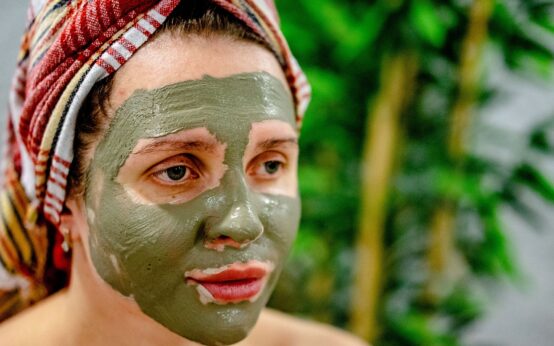Have you ever wondered why some people seem to age gracefully, while others face numerous age-related issues? The secret might be in your genes. Genetics play a significant role in how we age and how long we live. In this article, we’ll explore how genetics influence the aging process and what it means for you.
The Fundamentals of Aging
Aging is a natural part of life, but it’s a complex process that involves various factors, including genetics, environment, and lifestyle. Scientists define aging as the gradual decline in physiological function, increasing the vulnerability to diseases and leading to death over time. Let’s explore how these factors intertwine with your genetic makeup.
The Biological Clock
Every cell in your body can be imagined as ticking off seconds, representing its lifespan. Inside your cells are structures called telomeres, which protect the ends of your chromosomes from deterioration. As you age, these telomeres shorten, which is thought to be a marker of biological aging.
Key Components of Aging
- Genetic Factors: Your genetic makeup contributes significantly to your lifespan. Certain genes can predispose you to longevity or, conversely, make you more susceptible to age-related diseases.
- Environmental Influences: Factors such as diet, exercise, exposure to toxins, and stress levels play a crucial role in determining how quickly you age.
- Lifestyle Choices: Habits like smoking, alcohol consumption, and sun exposure can accelerate aging.
Genetics and Longevity: The Connection
The study of aging and genetics has seen remarkable advancements, revealing how genetics can influence lifespan and healthspan.
Heritability of Lifespan
Research suggests that genetics determine about 20-30% of your lifespan. The rest is shaped by lifestyle and environmental factors. Some families have ‘longevity genes’ that contribute to members living exceptionally long lives.
Longevity Genes
Several genes have been linked to increased longevity. Here are a few:
- FOXO3: Often associated with long life, FOXO3 is involved in regulating cell growth, DNA repair, and metabolism.
- APOE: This gene comes in several forms, one of which (APOE e4) is linked to a higher risk of Alzheimer’s.
- SIRT1: Known for its role in cellular regulation, this gene is involved in aging and is a target for anti-aging therapies.
| Gene | Function | Impact on Longevity |
|---|---|---|
| FOXO3 | Cell growth and DNA repair | Positive impact on lifespan |
| APOE | Lipid metabolism and brain function | Some variants increase disease risk |
| SIRT1 | Cellular regulation | Target for longevity research |

How Genetics Influence Age-Related Diseases
Genetic predispositions can also determine susceptibility to age-related diseases, which can affect your overall longevity.
Common Age-Related Diseases
- Cardiovascular Disease: Often hereditary, it can be exacerbated by lifestyle.
- Cancer: While some cancers are strongly linked to genetic factors, lifestyle choices like diet and smoking also play significant roles.
- Alzheimer’s Disease: Certain genetic variants can increase the risk, but lifestyle and environmental factors are crucial too.
The Role of Family History
Knowing your family history is essential, as it can provide clues about your genetic predispositions. If multiple family members have experienced age-related diseases, discussing this with a healthcare provider may be beneficial.
Epigenetics: Bridging Nature and Nurture
Epigenetics is the study of how behaviors and environment can cause changes in gene expression. These changes don’t alter your DNA but can affect how your genes work, influencing aging and longevity.
How Epigenetics Works
Epigenetic changes are modifications that can turn genes on or off. They are influenced by factors such as diet, physical activity, and exposure to pollutants, thus affecting aging processes and disease susceptibility.
Examples of Epigenetic Factors
- Diet: Nutrient-rich diets can promote positive epigenetic changes.
- Exercise: Regular physical activity is associated with beneficial epigenetic effects.
- Environmental Toxins: Exposure to pollutants can lead to harmful epigenetic changes.

The Future of Genetic Research in Aging
Research continues to evolve, offering new insights and potential interventions to slow or alter the aging process.
Current Research and Innovations
Scientists are exploring how modifying certain genes may extend lifespan or improve health in later years. CRISPR technology, for example, allows for gene editing that may one day treat age-related diseases.
Potential for Anti-Aging Therapies
Gene therapy and medications targeting aging mechanisms may soon become viable options for extending healthspan and possibly lifespan.
Practical Implications for Your Health
While you can’t change your genetic makeup, understanding your genetic predispositions can empower you to make informed decisions about your health and lifestyle.
Personalized Medicine
Genetic testing has become more accessible, allowing for personalized healthcare plans tailored to your unique genetic profile.
Lifestyle Modifications
- Diet and Nutrition: Prioritize a diet rich in antioxidants, vitamins, and minerals to support healthy aging.
- Regular Exercise: Physical activity improves cardiovascular health and promotes muscle maintenance, positively affecting aging.
- Stress Management: Techniques like meditation and yoga can mitigate the negative effects of stress on your health.

Conclusion
While genetics play a significant role in how you age, lifestyle and environmental factors are just as crucial. By understanding the interplay of genetics and aging, you can take proactive steps to support a healthier, potentially longer life. Knowledge is your ally in this journey, and with the power of both science and lifestyle changes, you can make the most of your genetic inheritance.

 The Best Ingredients For Anti-Aging Skincare
The Best Ingredients For Anti-Aging Skincare  Guide to the Best Anti acne Products for Clear Skin
Guide to the Best Anti acne Products for Clear Skin  The Science Behind Mindfulness And Mental Well-being
The Science Behind Mindfulness And Mental Well-being  How To Establish A Healthy Sleep Routine
How To Establish A Healthy Sleep Routine  The Best Exercises For Weight Loss And Toning
The Best Exercises For Weight Loss And Toning  How To Create A Balanced Workout Routine
How To Create A Balanced Workout Routine  How To Create A Skincare Routine For Oily Skin
How To Create A Skincare Routine For Oily Skin  The Best Ingredients For Anti-Aging Skincare
The Best Ingredients For Anti-Aging Skincare  Skincare Myths That Are Wrecking Your Glow
Skincare Myths That Are Wrecking Your Glow  Natural Skincare 101: Everything you Need to Know
Natural Skincare 101: Everything you Need to Know  The Ultimate Guide To Sunscreen: What You Need To Know
The Ultimate Guide To Sunscreen: What You Need To Know  Guide to the Best Anti acne Products for Clear Skin
Guide to the Best Anti acne Products for Clear Skin